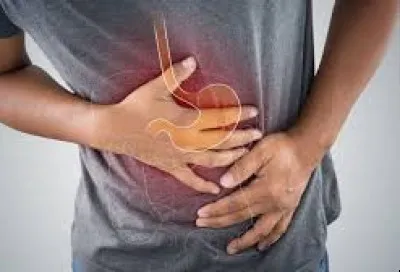This type of cancer can be challenging to detect in its early stages, making it crucial to understand its risk factors, symptoms, and treatment options.
Causes and Risk Factors
Stomach cancer typically begins in the mucus-producing cells lining the stomach. The exact cause of stomach cancer is not fully understood, but several factors may increase the risk of developing the disease. These include:

- Helicobacter pylori Infection: Chronic infection with the bacterium Helicobacter pylori (H. pylori) is strongly associated with stomach cancer. This infection can lead to chronic inflammation and increase the risk of cancer over time.
- Genetic Factors: A family history of stomach cancer can increase the likelihood of developing the disease. Certain genetic mutations and inherited conditions, such as hereditary diffuse gastric cancer (HDGC), can also contribute to the risk.
- Diet and Lifestyle: Consuming a diet high in salted, smoked, or pickled foods and low in fresh fruits and vegetables may raise the risk. Additionally, excessive alcohol consumption and smoking are linked to a higher incidence of stomach cancer.
- Age and Gender: Stomach cancer is more common in older adults, with the majority of cases occurring in people over the age of 60. Men are also more likely to develop stomach cancer than women.
- Previous Stomach Conditions: Individuals with a history of stomach conditions, such as gastric ulcers or gastric polyps, may have an increased risk of stomach cancer.
Symptoms and Diagnosis
The symptoms of stomach cancer can be vague and may resemble other less serious conditions, which often leads to a delay in diagnosis. Common symptoms include:
- Persistent abdominal pain or discomfort
- Unexplained weight loss
- Difficulty swallowing
- Nausea or vomiting
- Loss of appetite
- Feeling full after eating small amounts of food
- Blood in vomit or stool
Due to the non-specific nature of these symptoms, early detection of stomach cancer can be difficult. If stomach cancer is suspected, several diagnostic tests may be conducted:
- Endoscopy: A thin, flexible tube with a camera (endoscope) is inserted through the mouth to examine the stomach lining and obtain tissue samples for biopsy.
- Imaging Tests: Tests such as ultrasound, CT scans, and PET scans can help determine the extent of cancer spread and assess whether it has metastasized to other organs.
- Biopsy: A biopsy involves removing a small sample of stomach tissue for microscopic examination to confirm the presence of cancer cells.
Treatment Options
Treatment for stomach cancer depends on the stage of the disease, the location of the tumor, and the patient's overall health. Common treatment options include:
- Surgery: Surgical procedures are often used to remove the cancerous tumor and, in some cases, part or all of the stomach. The type of surgery may vary based on the extent of the cancer and may include partial gastrectomy (removal of part of the stomach) or total gastrectomy (removal of the entire stomach).
- Chemotherapy: Chemotherapy uses drugs to kill cancer cells or inhibit their growth. It may be administered before surgery (neoadjuvant therapy) to shrink the tumor or after surgery (adjuvant therapy) to eliminate any remaining cancer cells.
- Radiation Therapy: Radiation therapy involves using high-energy rays to target and destroy cancer cells. It is often used in combination with other treatments, especially for patients who cannot undergo surgery.
- Targeted Therapy: Targeted therapies are drugs that specifically target cancer cells while minimizing damage to normal cells. They are often used for specific types of stomach cancer with identifiable genetic mutations.
- Immunotherapy: This treatment stimulates the body's immune system to recognize and attack cancer cells. Immunotherapy is still being studied for its effectiveness in stomach cancer treatment.
